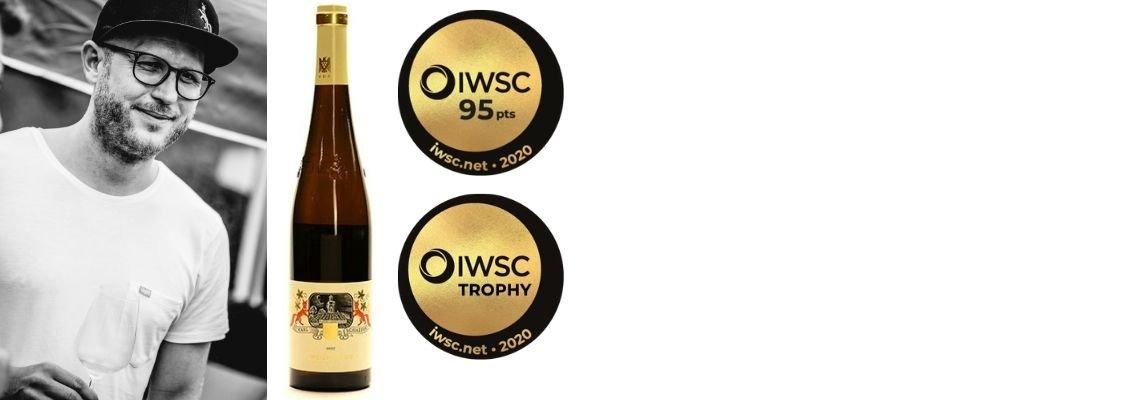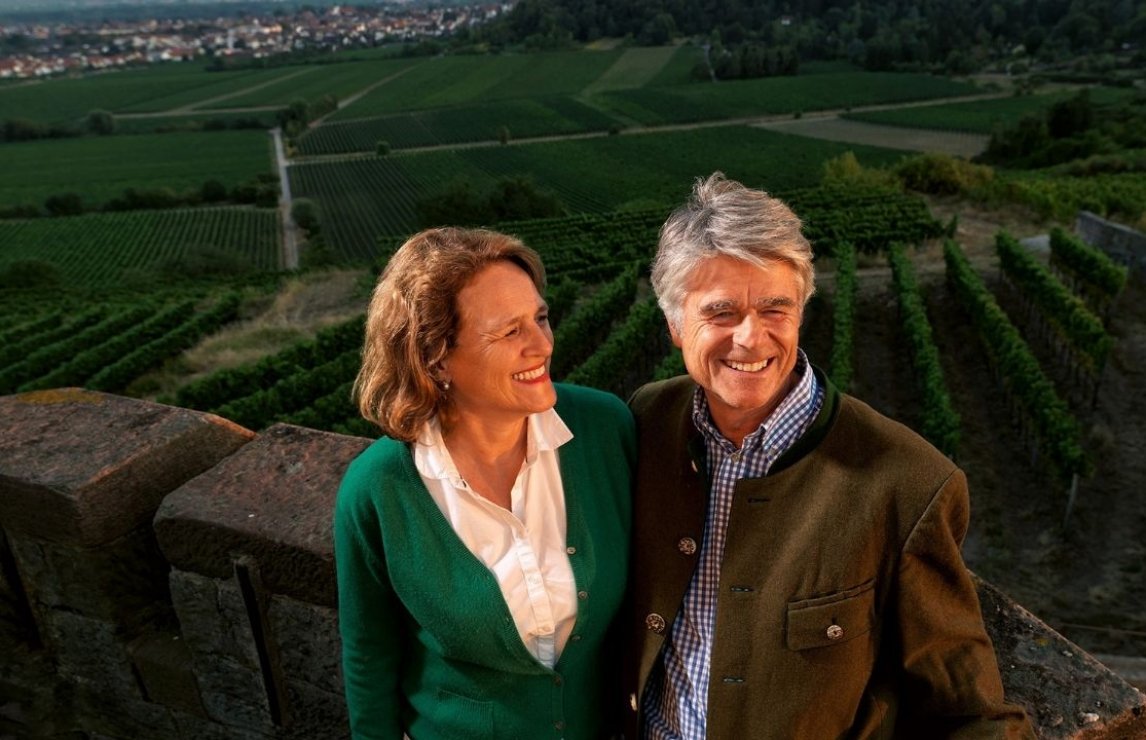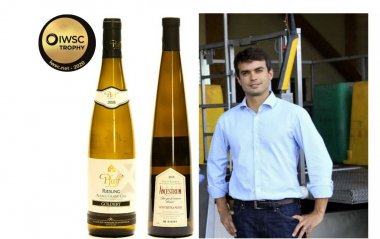Riesling trophy winner 2020: Karl Schaefer Ungsteiner Weilberg GG 2017
As an organic winery, the three winemaking pillars of Karl Schaefer, the German winery behind the IWSC trophy-winning Ungsteiner Weilberg GG Riesling 2017 should come as no surprise: grapes, soil and teamwork.
The estate was founded in 1843 in the country's southwest Pflaz region and grew to prominance under the direction of Karl Schaefer, prompting the winery to adopt his name. The sixth generation of the family – Dr. Job and Nana von Nell – currently oversee production and are dedicated to keeping the estate's traditions alive.
The team aims to work in the most ecological way possible. By carefully observing how the grapes are developing, it can carry out necessary maintenance at the right time. Selective handpicking yields ripe, healthy grapes that go on to create characterful wines typical of the region.
The estate has diverse soil types, something that it uses to great effect. Even though the same grape variety – usually Riesling – is planted on each plot of land, the different plots have distinct soil types that create wines with different personalities. What's more, by focusing on sustainability and the best cultivation techniques, the soils remain full of nutrients, creating a vitality that shines through in the wines.
We spoke to Johann Seibt, Karl Schaefer's cellarmaster, about his three golden rules when making wine, two books that have made the biggest difference to his work and the team that makes it all happen.
Tell us about the history and background of Weingut Karl Schaefer
The winery is located in the Palatinate – also known as the Pfalz – and was founded in 1843 by the spa doctor Christian Schaefer; he used white wine as a detoxification treatment. The genuine winemaker, however, was his son Karl Schaefer. Job and Nana von Nell are the sixth generation of winemakers in the family and currently run the winery. The 18ha estate has eight famous terraces with different soil types. The Weilberg GG (Großes Gewächs, a term that refers to a dry wine from the very best vineyards) is located in a shell limestone riff. Karl Schaefer was a founding member of the VDP - Verband Deutscher Prädikatsweingäter, the prestigious association of the self-elected best German producers - and specialised in cultivating Riesling and Pinot Noir as well as making sparkling wines. Karl Schaefer gained organic certification 16 years ago and focuses on healthy soil. Nourishing soil means thriving plants and nutritious grapes, the basis for great wines. 
^ Johann Seibt, Karl Schaefer's Cellarmaster & the trophy-winning Ungsteiner Weilberg GG Riesling 2017
What is your winemaking philosophy?
As wine is “produced” in the vineyard, we focus on healthy soil to avoid the disadvantages of a monoculture. The young, motivated team that supports our 34-year-old winemaker Johann Seibt tries to work as closely as possible with nature. The grapes are mostly hand-harvested in small sections.
What is the best piece of advice you have been given and how did you use that in your winemaking?
Follow the golden rules: “true to origin, honestly made and delicious!”
Who or what has been your most important influence and why?
The most important influences were two books: Postmodern Winemaking by Clark Smith and Teaming up with Microbes by Jeff Loewenfels and Wayne Lewis. They provided a better understanding of how to work with nature using natural processes.
How can people best enjoy your wine?
You can enjoy them on their own or matched with fine food.
More IWSC white wine recommendations:

